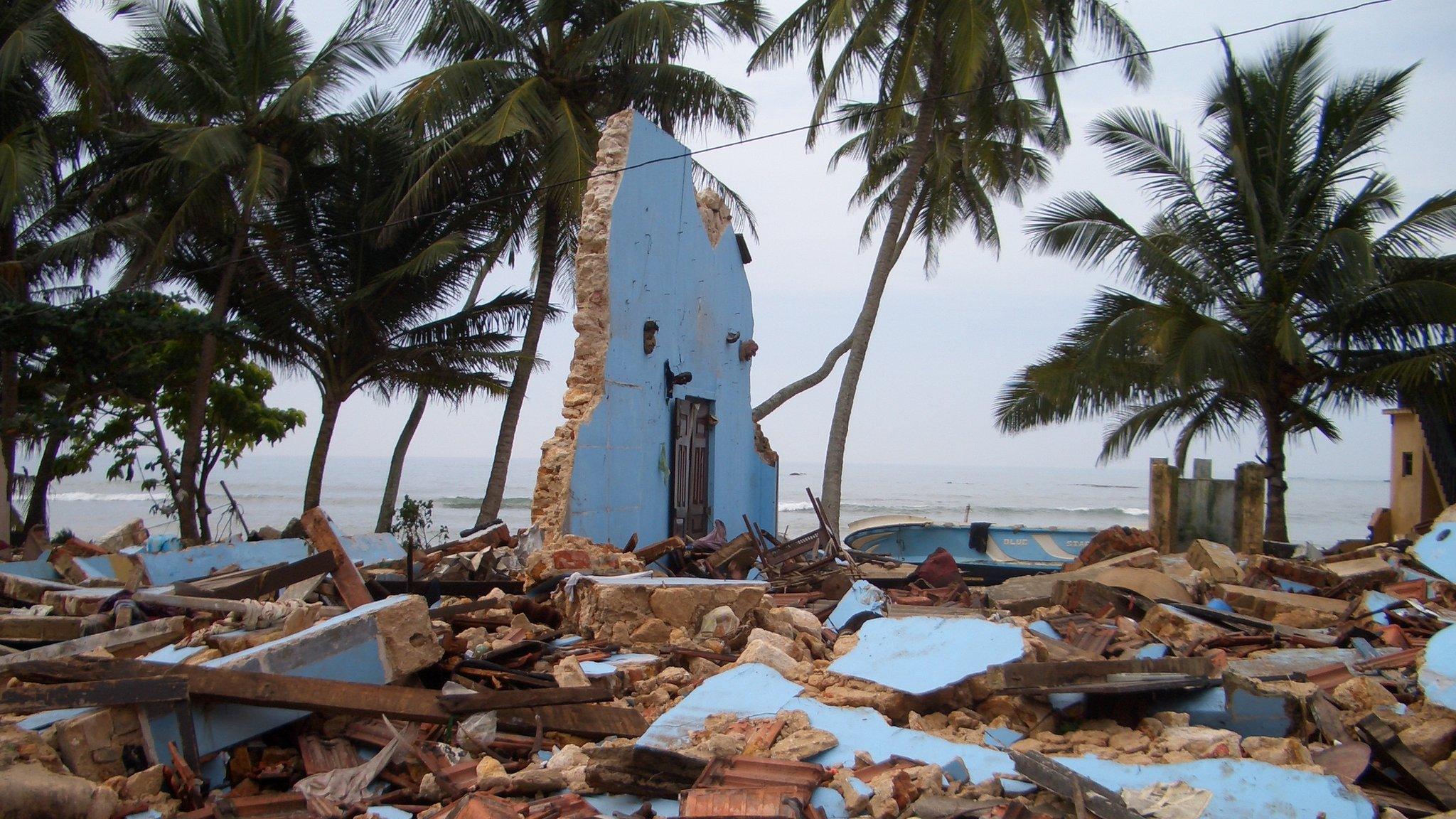Indian Ocean tsunami anniversary: Memorial events held
- Published
Thailand's prime minister joined relatives at an official ceremony in Khao Lak
Memorial services have been held in Indonesia and other nations for the victims of the Indian Ocean tsunami on the 10th anniversary of the disaster.
In Indonesia's province of Aceh - the worst-hit area - Vice-President Jusuf Kalla led tributes to the dead at the Siron mass grave.
Thai Prime Minister Prayuth Chan-ocha also laid a wreath of remembrance.
More than 200,000 people died when an underwater earthquake set off massive waves on 26 December 2004.
BBC News Sting
In Aceh's capital, Banda Aceh, Mr Kalla thanked local volunteers and the outside world for helping Aceh recover from the tragedy. He also presented awards to ambassadors from the donor nations.
"Thousands of corpses were sprawled in this field" he said. "Tears that fell at that time... there were feelings of confusion, shock, sorrow, fear and suffering. We prayed."
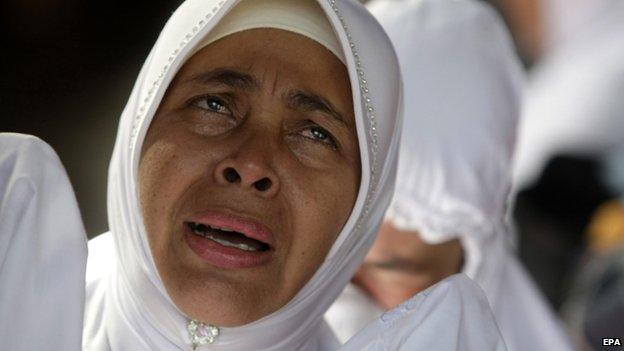
In Indonesia's Aceh province, people prayed at a mass grave where many tsunami victims are buried
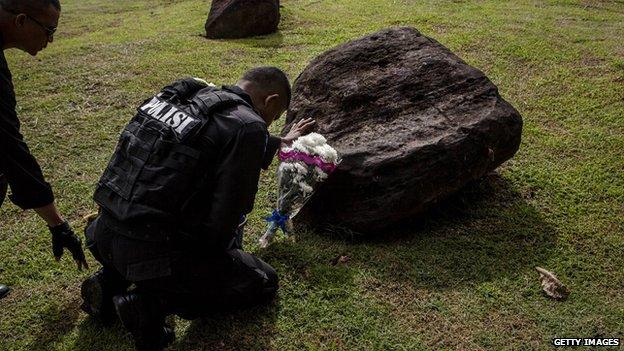
Policemen joined those paying their respects at a mass grave in Aceh
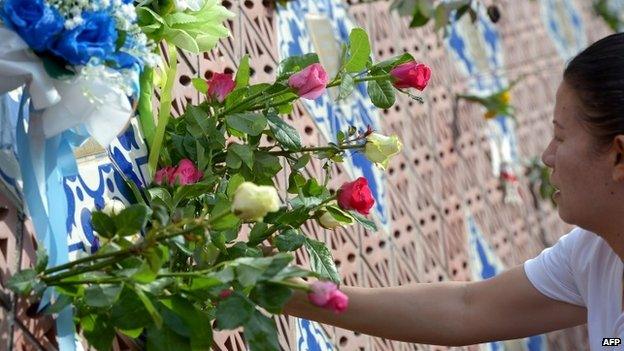
Thousands of Thais died in the disaster, along with hundreds of sun-seeking European visitors
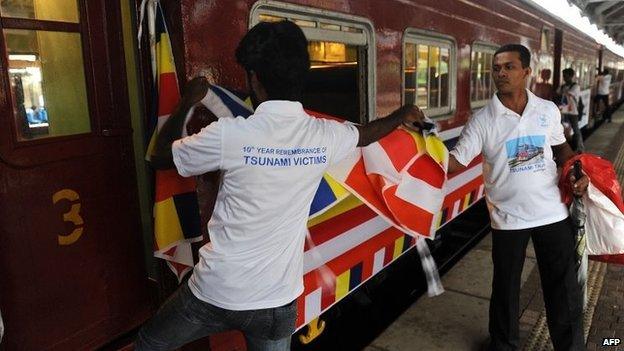
In Sri Lanka, the Ocean Queen Express - or the "tsunami train" - in which more than 1,700 people were killed has become a symbol of the tragedy
Earlier, thousands of people earlier gathered at Banda Aceh's Great Mosque - a 19th Century building that was one of the few structures in the town to survive the tsunami.
Imam Asman Ismail said the tsunami had taught a "valuable lesson" to Aceh, which had been the scene of an armed conflict for nearly 30 years.
"After the tsunami, no-one fights against each other; people live in harmony and peace till this day," he said.
Efforts to end the conflict resumed after the tsunami, culminating in a peace deal between the government and the rebels in August 2005.

Indian Ocean tsunami of 2004
9.1
Magnitude quake
228,000
People killed - likely more
-
Quake fault line extended 1,500km
-
Rupture lasted about 10 secs
-
Tsunami waves reached 20-30m

In Thailand, people marked the anniversary with a series of solemn events and religious rites throughout the day.
Prime Minister Prayuth laid a wreath for victims at the site of a beached police boat that has become a symbol of the disaster.
Thai police boat 813 was swept nearly 2km (1.2 miles) in from the sea at Bang Niang near Phuket.
"This heavy loss serves as a reminder and lesson for everyone" he told thousands of guests.
Czech supermodel Petra Nemcova, who survived but lost her fiance in the tsunami, also spoke at the ceremony.
"I am thankful to all those who risked their lives to save me," she said.
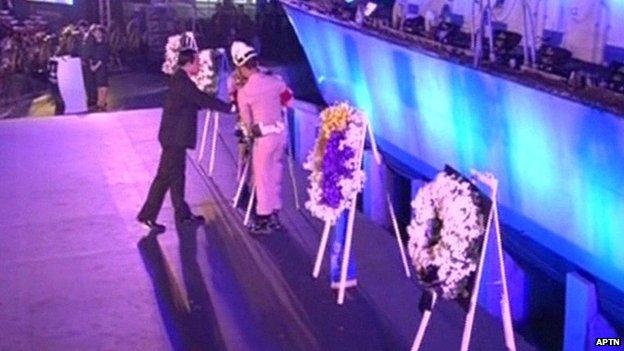
The prime minister of Thailand laid a wreath at a ceremony shown on national television
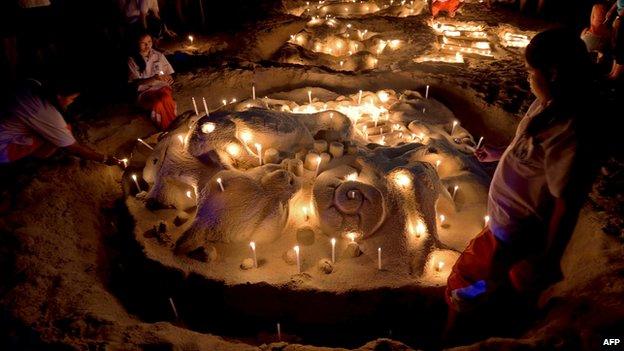
Thai students placed candles on a sand sculpture at Patong beach in Phuket province
In the small fishing village of Ban Nam Khem, Phang Nga province, people laid flowers at a memorial wall displaying names of the victims.
The village was devastated by the massive waves.
Nearly 5,500 people died in Thailand, half of whom were foreign tourists.
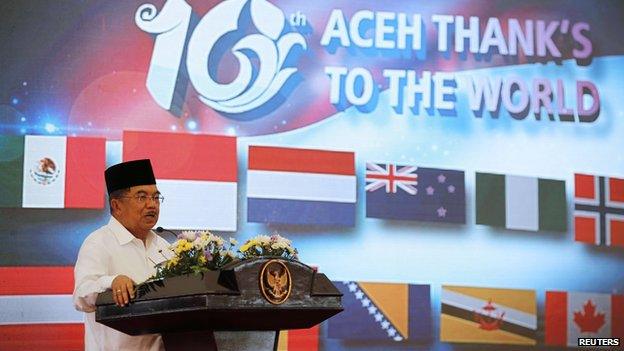
Indonesia's Vice-President Jusuf Kalla thanked donor nations for their assistance
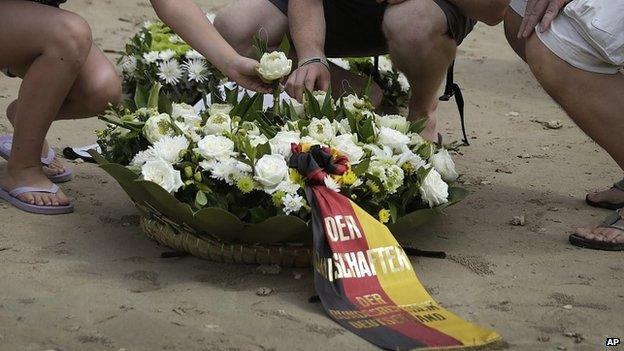
A commemoration and religious ceremony for German, Austrian and Swiss victims was held in Khao Lak beach in Thailand
In Sri Lanka, the Ocean Queen Express train - which has become a symbol of the tragedy for the nation - was at the centre of commemorative events.
The overcrowded train was hit by the tsunami south of the capital Colombo. More than 1,700 people died, in what was the world's biggest rail disaster.
Some families were torn apart and then brought together again
Tsunami pictures from then and now
Survivors and relatives of those who died boarded the restored train carriage and went to Peraliya, where the train was struck.
Sweden, which lost over 500 of its citizens in the disaster, held a memorial service in the Uppsala Cathedral.
The strength of the quake off Indonesia's coast - the biggest tremor in the world since 1964 - unleashed giant waves that rushed across the Indian Ocean.
The tsunami also hit Bangladesh, Myanmar, Malaysia, the Maldives and later reached the east African nations' of Kenya, Somalia and Tanzania.
Tsunami warning systems and emergency procedures have been implemented since the disaster to try to minimise casualties in the future.
- Published26 December 2014
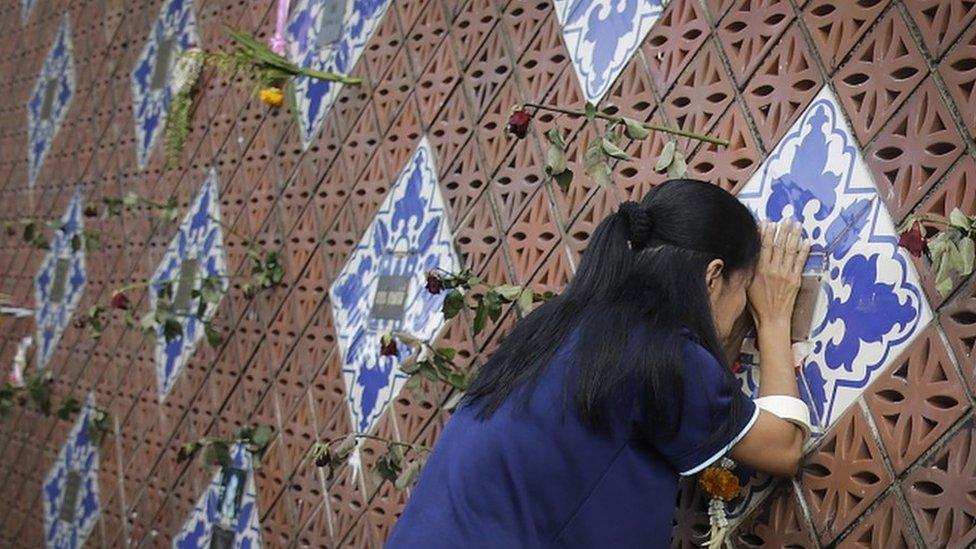
- Published25 December 2014
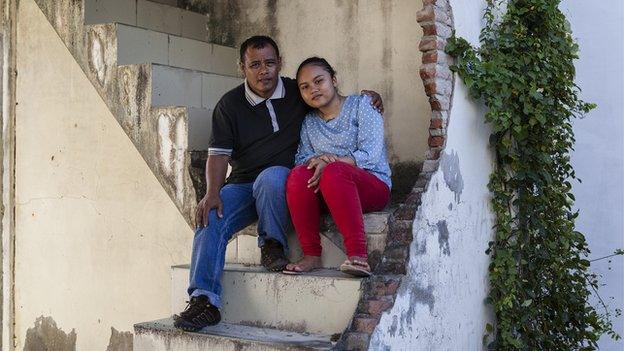
- Published25 December 2014
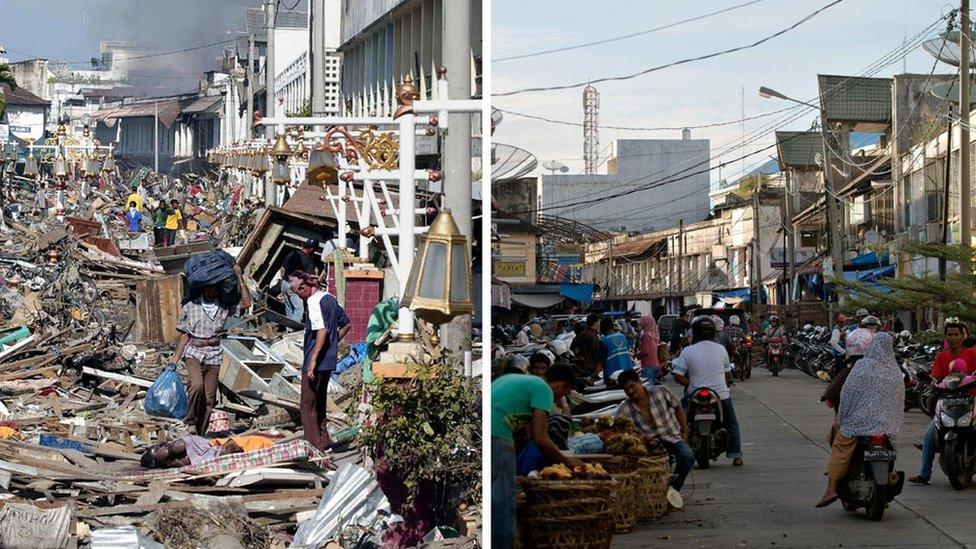
- Published25 December 2014
